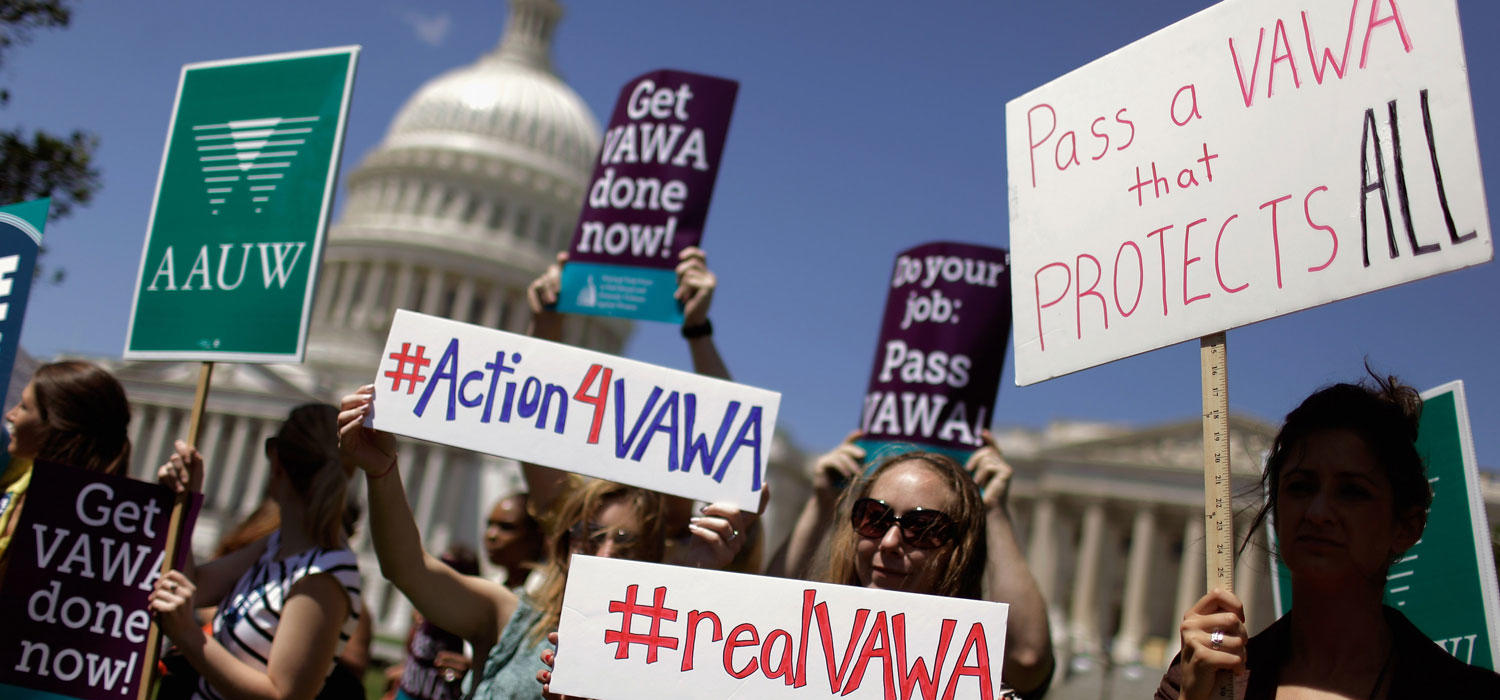
The original Violence Against Women Act (VAWA) passed in 1994, creating the first U.S. federal legislation acknowledging domestic violence and sexual assault as crimes and allocating federal resources to help combat those crimes. The Act is up for renewal every five years; it was renewed in 2022 and is set to remain in effect through 2027.
The history
In 1990, then-Senator Joe Biden initiated the effort to encourage Congress to pass VAWA when he passed a preliminary proposal to address the general issue of violence against women. A coalition, which has now evolved into the Task Force on the Violence Against Women Act, worked together to create the VAWA bill that was ultimately signed into law by President Bill Clinton in 1994.
Per Legal Momentum, it took four years to pass VAWA into law because of opposition to a private civil rights remedy. This pushback was led by former Chief Justice William Rehnquist of the Supreme Court, who took issue with this part of VAWA because it would allow survivors to sue their attackers. When it finally passed in 1994 — with the civil-rights remedy included — VAWA had support on both sides of the aisle, with 226 sponsors in the United States House and 68 in the Senate.
This final version of VAWA included the first federal criminal law against battering and provisions on rape. The bill also focused on prevention and funding for victim services. According to the Congressional Research Service, it allowed for enhanced sentencing of repeat federal sex offenders and mandated restitution to victims of federal sex offenses. It also authorized grants to help law enforcement entities investigate and prosecute violent crimes against women, among other provisions. Although the provision that allowed survivors to sue their abusers was initially included in the law, the Supreme Court (in a majority opinion authored by Justice Rehnquist) struck down that provision in 2000.
VAWA has been reauthorized four times: In 2000, 2005, 2013, and 2022. Since 1995, the Office on Violence Against Women (OVW), a part of the Department of Justice created to implement VAWA, has given over $11 billion in funds to governments and non-profit organizations focused on ending violence against women. To commemorate the 30th anniversary of VAWA in 1994, the OVW announced over $690 million in funding “to support services and justice responses for victims and survivors of domestic violence, dating violence, sexual assault, and stalking across all U.S. states and territories and in many Tribal nations,” per a press release from the United States Department of Justice.
Each time the bill has been authorized, the mandate to address domestic violence, sexual assault, and stalking has been expanded across its programs. The content of the Act has also been shifted to better help victims, recognize sexual assault, dating violence, and stalking as serious crimes. It has also more carefully and specifically served the needs of underserved populations — like communities of color, immigrant women and Native women — over time.
The 2022 VAWA Act
In 2022, former President Joe Biden signed into law the VAWA Reauthorization Act. This means that all current VAWA grant programs are reauthorized through 2027. Biden’s action also expanded the “special criminal jurisdiction of Tribal courts to cover non-Native perpetrators of sexual assault, child abuse, stalking, sex trafficking, and assaults on tribal law enforcement officers on tribal lands.” It also supported “the development of a pilot project to enhance access to safety for survivors in Alaska Native villages.”
See more here about what protections this reauthorization gave American women.
What’s next for VAWA?
As previously mentioned, VAWA has been authorized through 2027. Many grant programs within VAWA are funded by Congress, so the 2026 midterms will determine the makeup of the House and Senate when VAWA is up for reauthorization.
|


